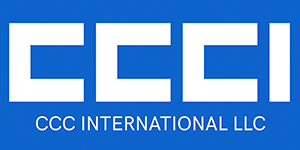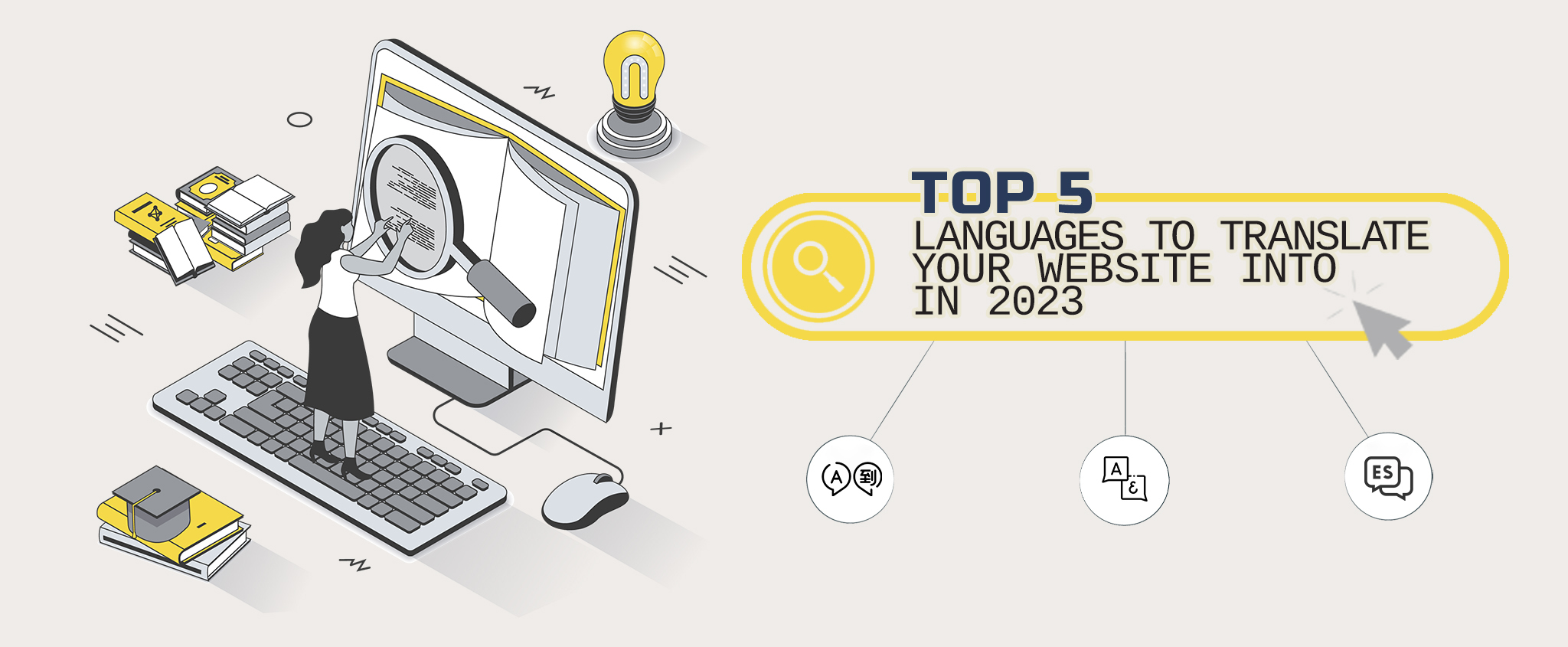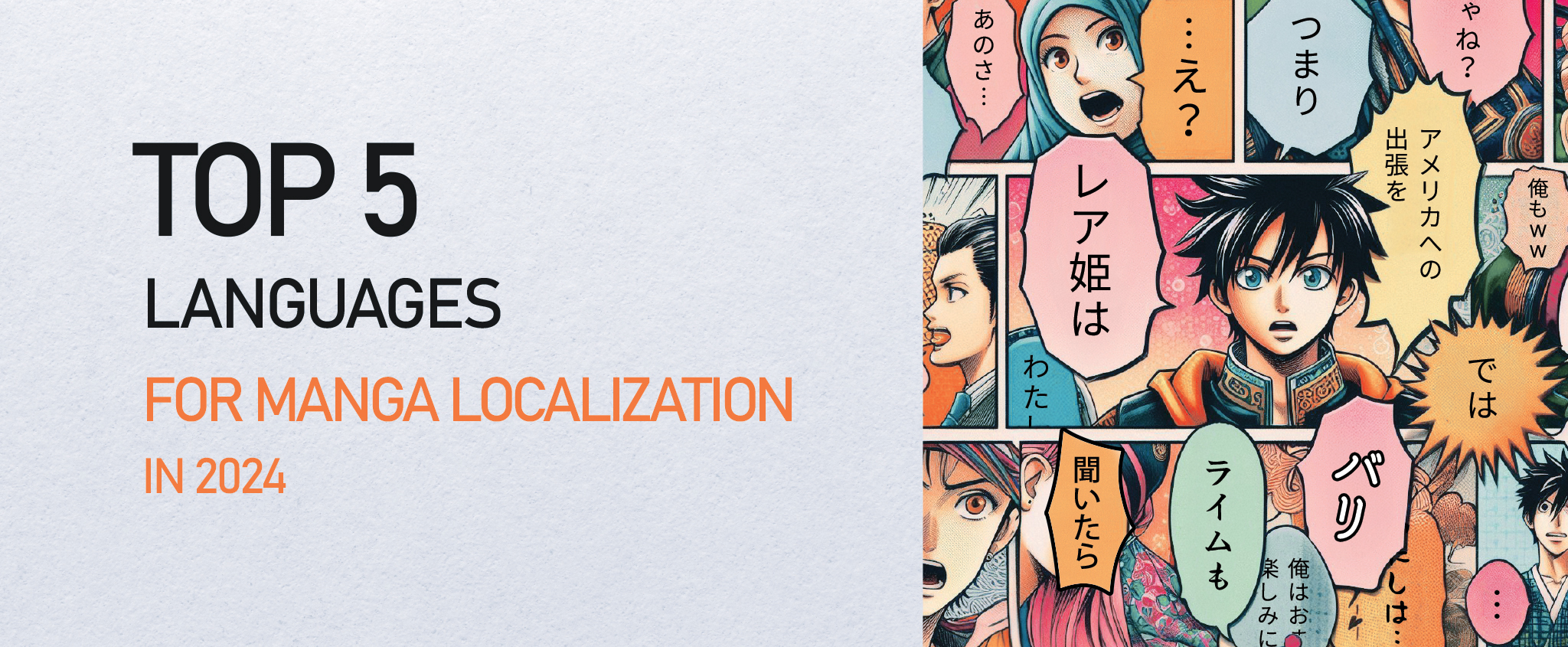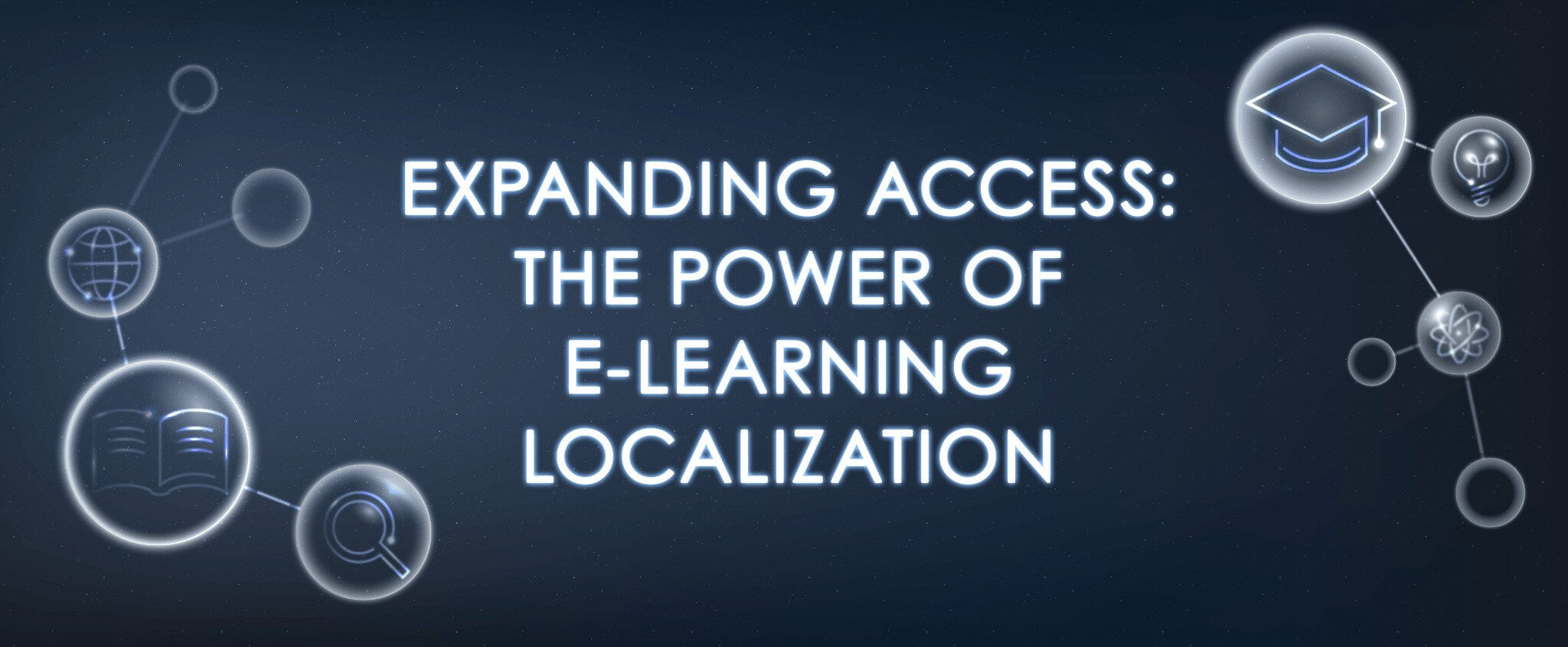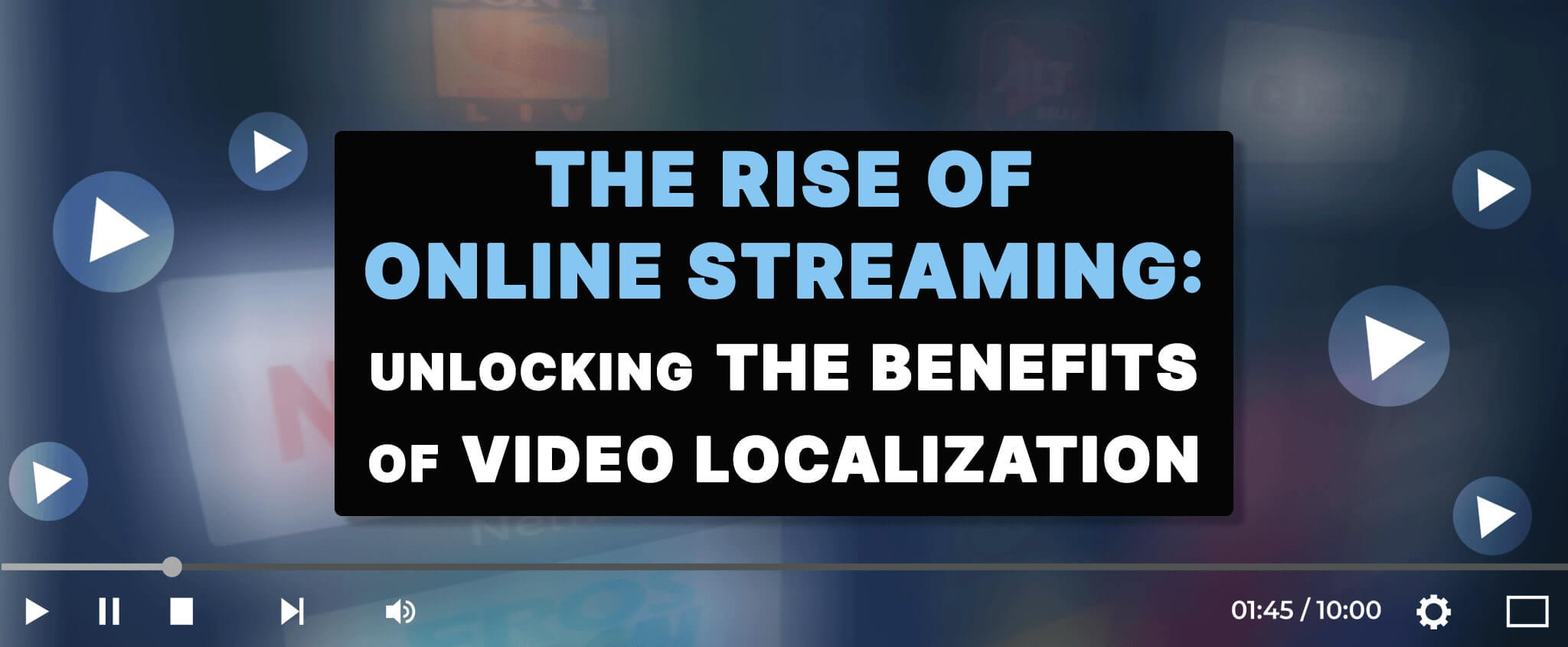Top 5 Languages to Translate Your Website into 2023
There are over 330 million companies worldwide, all competing in different industries and for different target markets. Each business provides products and services that seek to differentiate themselves from their competitors. And if there’s one excellent way to market a business is to have a website and translate it into multiple languages. If so, what are the top languages to translate your website into?
As a website translation company, CCC International is ready to share insights on the importance of websites for business and the languages you should consider translating websites into. Whenever you’re ready to reach more people across the globe and take your business to the next level, read on…
Key Takeaways:
- The top five languages to translate your website into are Chinese Mandarin, Hindi, Spanish, French, and Arabic.
- When you translate your website to Chinese Mandarin, you access over one billion potential customers worldwide.
- Understanding your target audience and analyzing your competitor’s strategies before translating your website is essential for success. Investing in human website translation and professional translation services is also best.
- Professional website translation is critical to ensuring your content is accurately translated, localized, and optimized for target markets.
- Website localization services differ from translation services by emphasizing contextualizing language for the target audience.
Table of Content:

Why Does Your Website Need Translation?
Did you know that there are over five billion internet users worldwide? That fact alone makes us understand why websites are crucial in today’s business world. 71% of businesses have a website making 28% of business conducted online.
Building a website is the first step to reaching your target audience. But what happens if your target audience speaks an entirely different language? What should you do to help your website perform optimally? CCCI says you need website translation. Here are the four most significant benefits of a website translation:
SEO Benefits
Translating your website into multiple languages increases visibility in search engines. It also builds backlinks from other websites in various languages, which helps your website rank higher in search engine results.
Expanded Brand Reach
Of course, with increased visibility and higher rank in search results, you also reach target potential customers in other countries. People who need your products or services will know you even if they don’t speak the same language!
World-Class Customer Experience
People from different countries can easily access your products, read about your services, and contact you for support. They’ll know they can trust your company because you provide a smooth user experience they can understand.
Boost In Traffic and Revenue
Translating your website into other languages will help you reach a wider audience and increase traffic. This benefit ultimately results in higher revenue, increased business opportunities, and more positive customer relationships!
5 Languages to Translate Your Website In 2023
Now that we’ve established the importance of websites and the benefits that translation provides, here are the top five languages to translate your website into:
?? Chinese Mandarin
There are over 900 million Chinese Mandarin first language speakers, making the language the second most spoken language globally. That means when you translate your website to Chinese Mandarin, you make it available to over one billion potential customers.
?? Hindi
Hindi is the third most spoken language in the world, with over 300 million first-language speakers. It’s one of India’s official languages, and India is the second most populous country worldwide. There are more than 600 million total number of speakers of Hindi!
?? Spanish
When it comes to the most widely spoken language among native speakers, Spanish ranks second. The language has more than 470 million first-language speakers and more than 500 million total speakers. Twenty-one countries speak Spanish, so your business can reach those markets with a website translation.
?? French
It is believed that if English the language of business, French is the language of culture. It has more than 200 million speakers in total, with 29 countries speaking it! French is also the third language with the most non-native speakers.
??Arabic
Last on our list is Arabic, specifically Modern Standard Arabic (MSA). It’s the only language with zero first-language speakers because it’s a large language with many dialects. But despite the lack of first-language speakers, MSA has over 200 million speakers worldwide!
Note: MSA is used in movies, newspapers, and TV broadcasts, but people don’t use it to speak with each other. You’ll find it in politics and other settings but not in everyday life. It’s one of the most complex languages, so relying on professionals to handle translations is essential!
Besides English, these five languages should be on every business’s list for website translations in 2023. It’s also a good idea to consider the following languages, which are also some of the most frequently used languages for web content:
- Russian
- German
- Japanese
- Turkish
- Persian
- Italian
- Portuguese
- Vietnamese
- Dutch
- Polish
- Indonesian
Tips On Translating Your Website
The more languages your website is available in, the farther you can reach potential customers. Translation helps spread awareness of your brand, but it’s not as easy as simply using an equivalent word in another language and calling it a day. Translation requires understanding the language, its nuances, and cultural differences. Here are five crucial tips to help you get started:
Understand Your Target Audience
Our first tip would be to return to the basics: Who is your target audience? Knowing whom you’re trying to reach and what language they use will inform which languages you should prioritize for your website’s translation.
Choosing just any language just because it’s popular or spoken by many people won’t necessarily guarantee success. Instead, you should focus on the languages your target audience speaks and ensure you offer what they’re looking for.
Analyze Your Competitor’s Strategies
It can be helpful to look at your competitors and the languages they’ve chosen for their websites. Chances are, if they’re translating into a specific language, it’s because there is a viable market. However, it’s crucial never to lose your unique edge while learning from the strategies of others. Use your competitors as a launching pad, and then differentiate your approach according to your business goals!
Trust Human Website Translation
Technology has made it possible to translate books, articles, and websites quickly and efficiently. Machine translations can be convenient and affordable, but remember that they can never replace the work of a human. It’s easy to lose nuances in the process because machines can miss particular meanings and contexts. Human translations provide a comprehensive solution that ensures accuracy and readability. They also help maintain your website’s tone, which is vital for customer experience.
Pro Tip: Invest in human website translation even if it takes more time and budget. You might need to pay extra for quality, but it’s worth it in the long run! There will be lesser risks involved than with machine translations, and you can guarantee that your website will speak to your audience naturally!
Invest In Website Localization Services
Many often confuse translation with localization. While the two are related, they’re different processes. Translation is about converting written content from one language to another. On the other hand, localization refers to adapting content to a particular country or culture.
For example, when translating a website from English to French, you might need to adjust the content for Francophone countries with different dialects and nuances. Localization services can help you tailor content to ensure it’s relevant and engaging to the right people.
Work With Professional Website Translators
This tip may seem obvious, but it cannot be stressed enough. The quality of your website translations is critical to success. So when selecting a translation partner, look for a provider that understands your language needs and has the experience to deliver translations that reflect your business’s image and values.
A professional translation provider offers accurate, high-quality outputs that meet industry standards. Experienced translators have the expertise to handle different dialects and nuances in different countries. They also understand local customs and preferences, allowing you to localize your website and create a targeted customer experience.
CCCI – Professional Website Translation Provider
With the global market expanding, multilingual websites have become crucial for businesses aiming to succeed internationally. You reap SEO benefits, grow your brand reach, provide a world-class customer experience, and boost your revenue. If you want all these to happen, translate your website into Chinese Mandarin, Hindi, Spanish, French, Arabic, and other languages. CCCI is the professional website translator you’re looking for!
CCCI is a multinational translation and localization agency with offices in Europe, Asia, and the United States. Our leaders and language experts specialize in various industries, providing services in up to 30 languages! We offer website translation services, supporting businesses in successful global expansion.
Your website has the potential to reach customers all over the world, and CCCI can make it happen. Contact us today!
